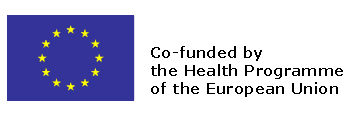
The European Union started a new project in January 2019 named RD-Code (Rare disease code) with participation of DIMDI and now BfArM as legal successor.
The objective of the project is to support Member States in improving gathering information on rare diseases by implementation of Orphacodes. This enables a standardised and consistent level of information to be shared at European level.
Guided by the tools "Standard procedure and guide for the coding with Orphacodes" and "Specification and implementation manual of the Masterfile", both developed in the RD-Action project, Orphacodes should be implemented into the coding systems of four European countries. The experience gained in this process should be used for the further development of the tools for the implementation of Orphacodes. They might benefit other countries which want to implement Orphacodes into their coding systems in the future. An updated version of the Master file for the statistical reporting with ORPHACodes and the document "Specification and implementation Manual for the Master file for statistical reporting with ORPHAcodes 1st update" is now available: Projectfile RD-CODE
Furthermore recommendations for undiagnosed patients coding will be issued within the project.
The RD-Code project will end in December 2021.
Additional information about the international EU projects on the web
Disclaimer RD-Code:
This website is part of the project RD-CODE which has received funding from the European Union’s Health Programme (2014-2020).
The content of this website represents the views of the author only and is his/her sole responsibility; it cannot be considered to reflect the views of the European Commission and/or the Consumers, Health, Agriculture and Food Executive Agency or any other body of the European Union. The European Commission and the Agency do not accept any responsibility for use that may be made of the information it contains.

